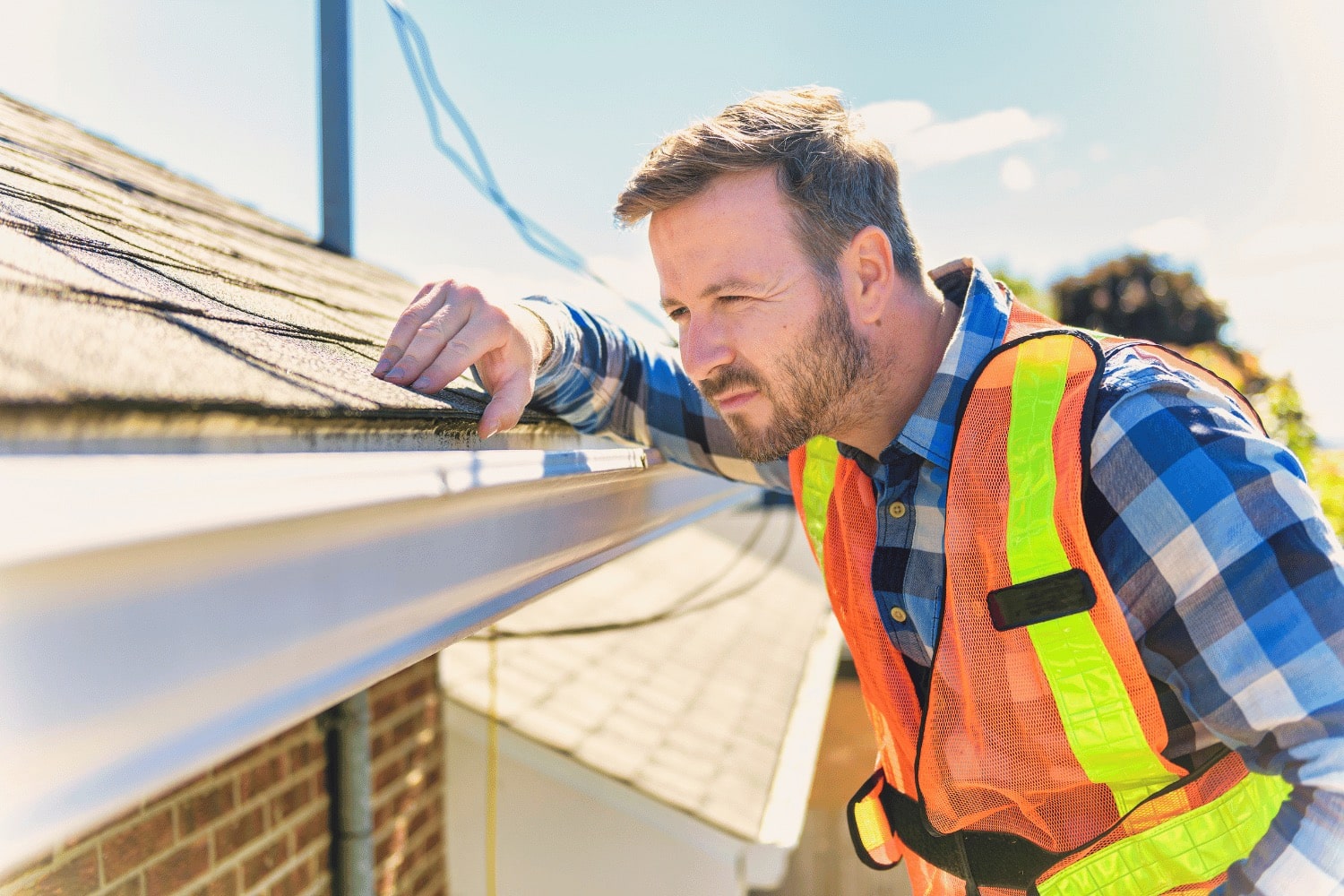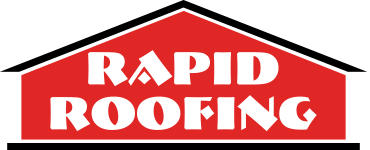Who Finances Roofs? Exploring Your Best Financing Options
If you’re facing a roofing project but lack the necessary funds, understanding your financing options is crucial. From securing a personal loan to leveraging home equity, or even engaging with contractor financing programs, this guide aims to demystify who finances roofs and provide clear direction on choosing the best path for your situation.
Key Takeaways
-
Homeowners looking to finance a new roof have three main options: personal loans, home equity loans, and contractor financing, each with distinct terms and qualifying conditions based on factors such as credit score and financial stability.
-
Rapid Roofing offers a variety of financing programs to accommodate different financial circumstances, including low-interest loans, payment plans, and assistance with insurance claims, alongside unique options like the energy-efficient Michigan Saves program.
-
The cost of roof replacement is determined by the type of roofing materials used, labor costs, location-specific permit requirements, and potential inspection fees, highlighting the importance of evaluating these factors when considering roof financing options.
Understanding Roof Financing Options

Acquiring a new roof involves making numerous decisions, including selecting the most appropriate financing option. We have simplified this process by narrowing down the numerous choices to three main financing options.
These are personal loans, home equity loans, and contractor financing. Each of these options has its unique advantages and considerations, and the choice largely hinges upon your financial situation, credit score, and the urgency of the roofing project.
Personal Loans
Personal loans are a popular choice for roof financing. They offer the convenience of fixed interest rates and consistent monthly payments, typically spread over one to seven years. This predictability provides homeowners with the ability to budget effectively and manage their finances with confidence, as they know the exact loan amount they need to repay.
However, it’s worth noting that to qualify for a personal loan with favorable terms, a good credit score is necessary, usually a score of 690 or higher. Therefore, before considering this option, it is vital to evaluate your creditworthiness and understand your credit score.
Home Equity Loans
For homeowners who have accumulated significant equity in their homes, home equity loans present another feasible option. These loans function as a second mortgage, providing a lump-sum amount that’s repaid in fixed monthly installments.
One of the primary advantages of a home equity loan is its lower interest rates compared to personal loans. They also offer long-term repayment options, extending up to 30 years, which can make the monthly installment more manageable. However, they come with the risk of the lender repossessing your home if you default on payments.
Contractor Financing
Contractor financing provides a more straightforward approach to roof financing. It involves roofing companies partnering with third-party financial entities to offer various financing options to their customers.
This can include in-house financing or loans through third-party companies. The terms and rates for these financing options are influenced by the roofing company’s policies and the customer’s credit score. This alternative can often provide more personalized and flexible solutions, tailored to individual financial situations.
Rapid Roofing’s Financing Assistance

At Rapid Roofing, we believe that financial constraints should never be a roadblock to a safe and secure roof over your head. Hence, we offer a variety of flexible financing programs that cater to different financial situations and credit positions. Some of our financing options include:
-
Low-interest loans
-
Payment plans
-
Credit card payments
-
Government assistance programs
With these options, we strive to make roofing services accessible to everyone, regardless of their financial circumstances.
Acknowledging the uniqueness of each homeowner’s financial situation, we offer versatile payment arrangements, including options such as $0 down. We also offer the option to spread payments over an extended period, with plans offering payment schedules up to 60 months for greater convenience.
Michigan Saves Program
One of the unique financing options we offer at Rapid Roofing is through our partnership with the Michigan Saves program. This program focuses on loan options that support energy efficiency improvements in your roofing projects.
By opting for this program, homeowners can not only finance their roofing projects but also contribute to energy conservation, making it a win-win situation.
Insurance Claim Assistance
We understand that dealing with insurance claims can be a daunting task. That’s why our roofing company offers assistance to our customers in navigating insurance claims for roofing repairs or replacements.
Our expert team conducts comprehensive inspections to ensure all damage is properly documented. We provide a claims specialist to be present during assessments by insurance adjusters, which helps to maximize the reimbursement from your insurance claim.
Factors Affecting Roof Replacement Costs

Understanding the factors that influence roof replacement costs can help you make an informed decision about your roof financing options. It’s not just about finding the financing plan; it’s about knowing what you’re financing.
Recognizing that factors like the roofing materials used, labor costs, and location-specific permit requirements influence roof replacement costs is vital.
Roofing Materials
The cost of a roof replacement is significantly influenced by the choice of roofing materials. Options range from affordable architectural asphalt shingles to premium roofing materials such as cedar shake, synthetic shingles, slate, and tile.
While premium materials may have a higher upfront cost, they often offer increased durability and aesthetic appeal, which could result in long-term savings and increased home value.
Labor Costs
A significant portion of roofing expenses consists of labor costs. These costs can vary based on the complexity of the project, the difficulty in accessing the roof, and the need to protect the surrounding property during the replacement process.
While labor costs make up a substantial portion of the total expense, it’s important to remember that cutting corners on skilled labor could result in substandard work, eventually costing more in the long run.
Location and Permits
Your property’s location can also impact your roofing project’s total cost. Each city has different permit requirements and associated costs, which can range from $100 to $1,000.
In addition to permit costs, inspection fees during the roof repair process vary by location and are another expense to consider in your project budget.
Tips for Choosing the Right Roof Financing Option

Now that we’ve explored the various roof financing options and understood the factors affecting roof replacement costs, the next step is to choose the right financing option. This decision should take into account your credit score, a comparison of loan offers, and the urgency of roof repairs.
These three aspects form the crux of making an informed decision when it comes to choosing the right roof financing option.
Assess Your Credit Score
Assessing your credit score is important before you start exploring financing options. Having a credit score of at least 670 will aid in obtaining favorable financing for a new roof.
A lower credit score may not necessarily prohibit you from securing a loan, but it may impact the terms of your loan, such as interest rates and repayment terms.
Compare Loan Offers
Comparing loan offers from various lenders is another crucial step in selecting the right roof financing option. This will ensure that you secure the best financial deal for your roofing project.
Look at the interest rates, associated fees, and repayment terms of each offer. Also, consider the lender’s reputation and customer service, which can significantly influence your overall financing experience.
Consider the Urgency of Roof Repairs
The urgency of your roof repairs can greatly affect your choice of financing options. If you’re dealing with a sudden water leak or other emergency, you’ll need funds quickly.
In such cases, personal loans or credit cards with an introductory 0% APR offer can be beneficial. These options provide quick access to funds, allowing you to address your urgent roofing needs promptly.
Additional Financing Alternatives

Additional financing alternatives are available for homeowners who are either not eligible for traditional loans or prefer other options to their existing mortgage, such as homeowners insurance.
These include seller-financed mortgages, lease-purchase agreements, and land contracts. While these unconventional methods may come with their unique terms and potential risks, they may provide the flexibility you need for your roofing project.
Home Equity Line of Credit (HELOC)
A Home Equity Line of Credit (HELOC) is another alternative financing option. A HELOC is a credit line secured by your home, allowing you to convert home equity to cash as needed for expenses like roofing projects.
HELOCs typically offer low rates with a repayment period of 20 years, making them a potentially more manageable financing option. However, to be eligible for a HELOC, you need fair credit and a home value at least 15% higher than what is owed.
Government-Insured Loans
Government-insured loans such as FHA 203(k) loans and FHA Title 1 loans are designed to have lower credit requirements. These loans can make substantial roof repairs more accessible for homeowners.
These government-backed loans enable homeowners to include the costs of roofing improvements in their mortgage refinance, such as a cash out refinance, when the expenses surpass $5,000. This can be a viable option for homeowners looking to undertake significant roofing projects.
Credit Cards
Lastly, for financing smaller, low-cost roof repairs that are expected to be paid off quickly, credit cards can be a suitable option. If you’re able to take advantage of a new credit card’s 0% APR promotional offer, you can finance your roof repair interest-free, provided you pay off the balance within the promotional period.
However, it’s important to ensure that you can complete repayment within the credit card’s promotional period. Failing to do so could lead to higher interest rates being applied to the remaining balance.
Summary
We’ve covered a lot of ground in this blog post. From understanding various roof financing options to exploring Rapid Roofing’s financing assistance, assessing the factors affecting roof replacement costs and tips for choosing the right financing option, we hope you now feel well-equipped to make an informed decision.
Remember, the right roof financing option is the one that best suits your financial situation, your credit score, and the urgency of your roofing needs. Be sure to assess your options carefully, compare loan offers, and consider the long-term implications of your choice.
Frequently Asked Questions
What services does the roofing company offer besides roofing?
In addition to roofing, Rapid Roofing offers services such as gutters, siding, and skylights to meet a variety of needs.
How many locations does the roofing company have in Michigan and Ohio?
Rapid Roofing has six locations in Michigan and Ohio.
Does the roofing company provide financing assistance?
Yes, Rapid Roofing provides financing assistance through flexible programs, including options with Michigan Saves.
Can the roofing company help with insurance claims?
Yes, the roofing company can help with insurance claims by offering expert assistance in navigating the insurance claim process.
What are the benefits of choosing a commercial roofing company for flat roof repairs?
Choosing a commercial roofing company for flat roof repairs ensures expert and timely services tailored to meet the specific needs of commercial properties. This can help in minimizing disruption and ensuring long-lasting solutions.






